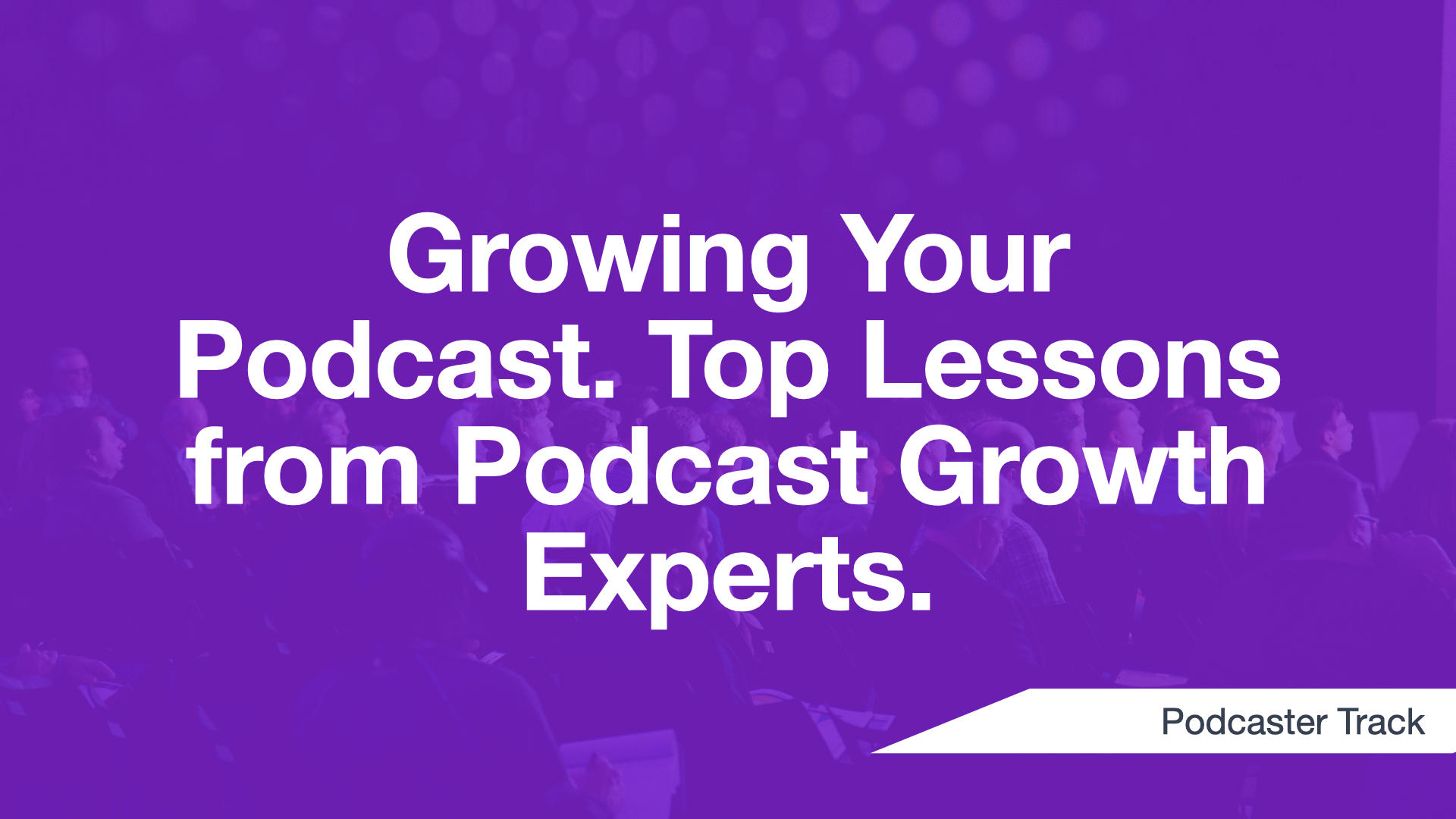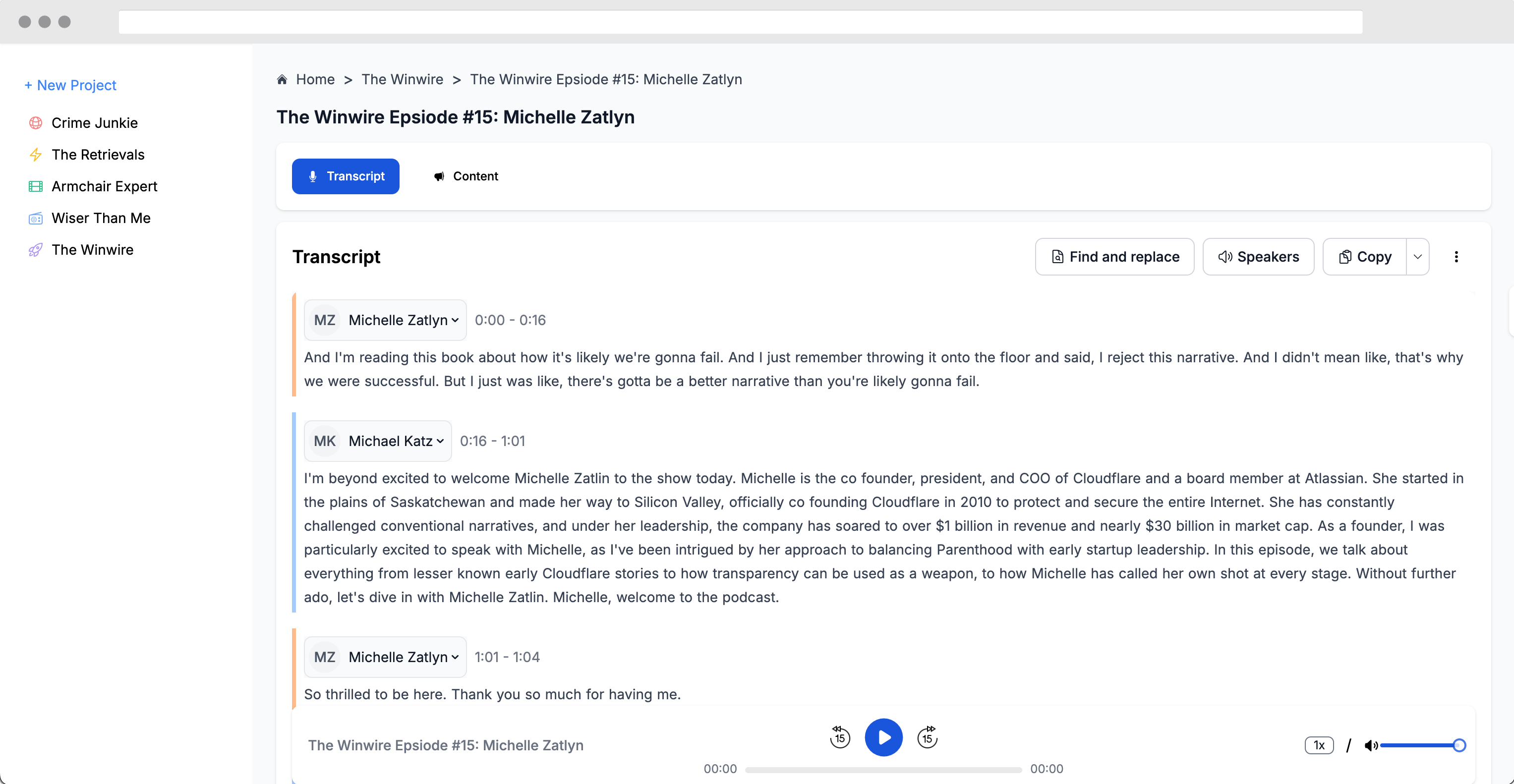Growing Your Podcast. Top Lessons from Podcast Growth Experts

Key Takeaways
Understand Your Audience Deeply: Knowing your audience's psychological and psychographic details is crucial. This understanding helps in attracting, retaining, and converting listeners by addressing their specific problems and aspirations.
Articulate Your Show's Value: Clearly define what your podcast offers to its listeners. This clarity simplifies growth strategies and content creation, making it easier to attract and retain an audience.
Competitor Research is Essential: Regularly analyze your competitors to identify gaps and opportunities. This helps in positioning your podcast uniquely and effectively within your niche.
Optimize Listener Engagement: Focus on metrics like completion rates to understand how much of your content is being consumed. High engagement rates can improve your podcast's visibility on platforms.
Consistent Listener Interaction: Regularly engage with your listeners through surveys and calls to understand their preferences and improve your content accordingly.
Overview
Seth Silvers led a panel on podcast marketing growth, featuring experts Courtney Elmer, Kevin Chemidlin, and Jeremy Enns.
Courtney emphasized the importance of understanding the human psychology behind podcast audiences, stressing that knowing listeners' problems and aspirations is crucial for attracting and retaining them.
Kevin highlighted the significance of articulating what a podcast does for its listeners and suggested focusing on one marketing strategy to master it.
Jeremy advocated for continuous competitor research and engaging directly with listeners to refine content and marketing approaches.
The panel collectively underscored the need for foundational work and strategic focus to achieve sustainable podcast growth.
Core Concepts
Understanding Audience Psychology
Understanding the psychological and psychographic details of your audience is fundamental to podcast growth. This involves knowing what keeps them up at night and what they aspire to achieve.
Key Points:
Podcasting is about humans talking to humans.
Knowing your audience's problems and aspirations helps in creating relevant content.
This understanding is crucial for attracting, retaining, and converting listeners.
Examples:
A podcast that addresses specific pain points of its audience, such as "Five reasons why your podcast isn't growing," can attract more listeners than a generic title.
Entertainment podcasts also solve problems by providing a form of escapism or community for their listeners.
Quotes:
Understanding your listener, not just demographically, but psychologically, psychographically, is so key.
Every podcast solves a problem for people.
Articulating Your Show's Value
Clearly defining what your podcast offers to its listeners is essential. This clarity helps in simplifying growth strategies and content creation.
Key Points:
Articulate what your show does for its listeners, not just what it does.
This clarity makes it easier to attract and retain an audience.
It also simplifies decisions regarding content and growth strategies.
Examples:
Instead of saying, "I interview successful people," say, "My podcast helps you grow your podcast."
A podcast that clearly states its value proposition in its title and description is more likely to attract listeners.
Quotes:
Grow the Show is the podcast that grows your podcast.
When you get good at articulating what your show does for its listener, it makes everything else way, way easier.
Competitor Research and Show Development
Regularly analyzing your competitors helps in identifying gaps and opportunities. This research is crucial for positioning your podcast uniquely within your niche.
Key Points:
Competitor research should be an ongoing process.
Identify what your competitors do well and find areas where you can differentiate.
This helps in creating a unique value proposition for your podcast.
Examples:
Listening to multiple episodes of your competitors and making a spreadsheet of their strengths and weaknesses.
Finding a niche within your niche that complements what your competitors are already offering.
Quotes:
You should still do it. It's never too late.
Do really in-depth competitor research before launching a new show.
Conclusion
The discussion highlighted the importance of understanding your audience's psychology, clearly articulating your podcast's value, and conducting regular competitor research. These elements are crucial for creating a successful podcast that attracts, retains, and converts listeners. Additionally, optimizing listener engagement and consistently interacting with your audience can significantly improve your podcast's growth. The insights shared by the panelists provide a comprehensive guide for podcasters looking to enhance their show's reach and impact.
Food for Thought
How can you better understand the psychological needs of your audience to create more engaging content?
What unique value does your podcast offer that sets it apart from competitors?
How can you consistently engage with your listeners to gather valuable feedback and improve your content?
Reference Tools, Platforms, and Resources
Apple Podcasts and Spotify: For checking completion rates and listener engagement metrics.
Podcast Marketing Academy: For in-depth competitor research and podcast marketing strategies.
Podlaunch: For optimizing podcast SEO and guesting strategies.
Story on Media: For comprehensive podcast production and growth strategies.

32% month-over-month growth for Courtney Elmer's podcast
Kevin Chemidlin's client tripled their downloads from 12,000 to 36,000 per month after improving episode intros.
20% average completion rate for Kevin Chemidlin's client's podcast before improving intros.
85% to 95% episode completion rates can impact chart placement on platforms like Spotify.
Jeremy Enns' client conducted 25 listener calls, each 30 to 60 minutes long, to better understand their audience.




